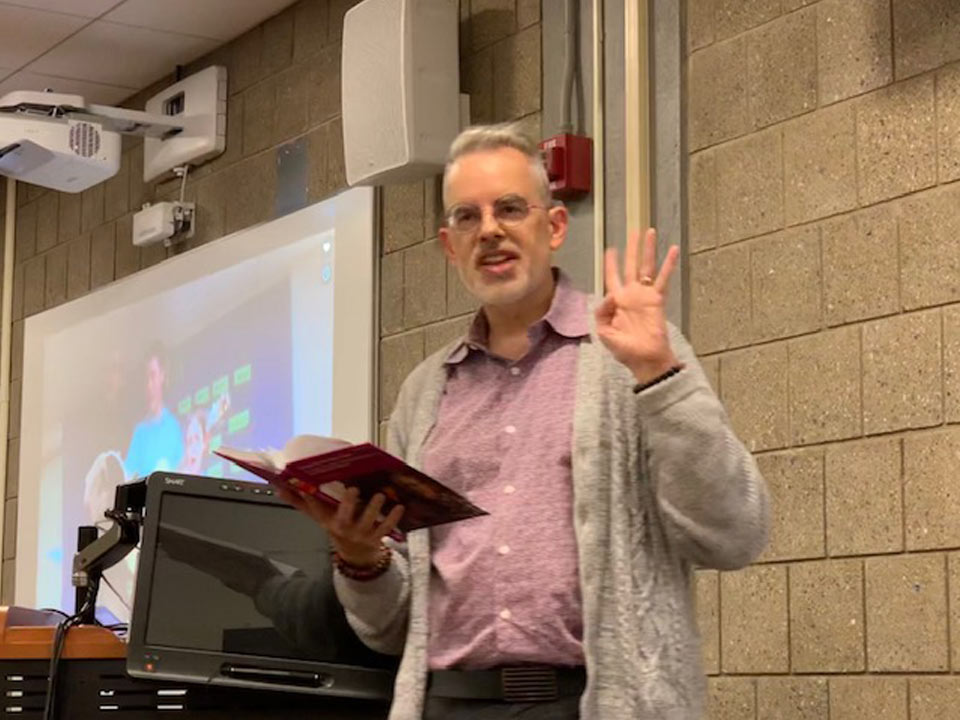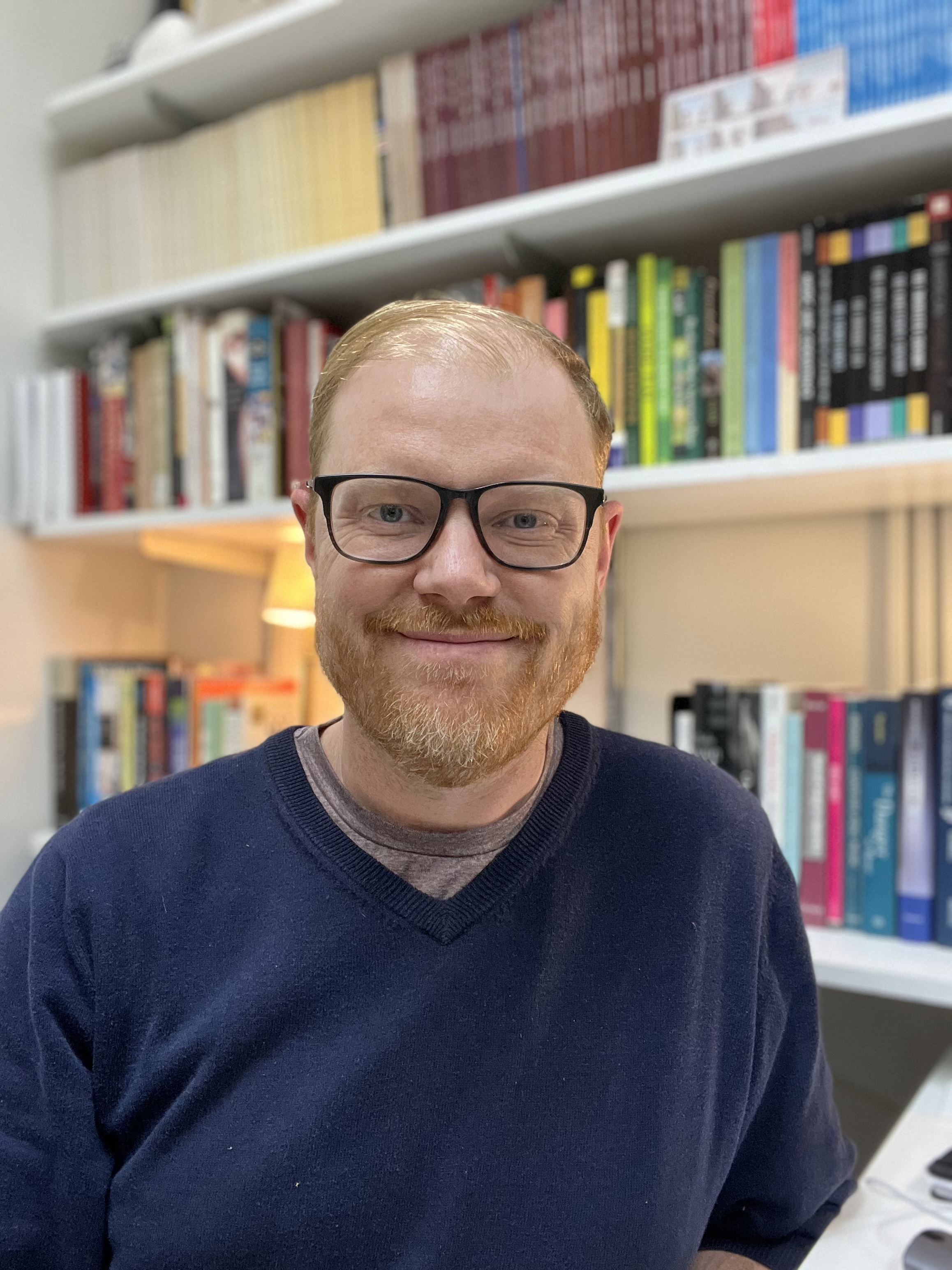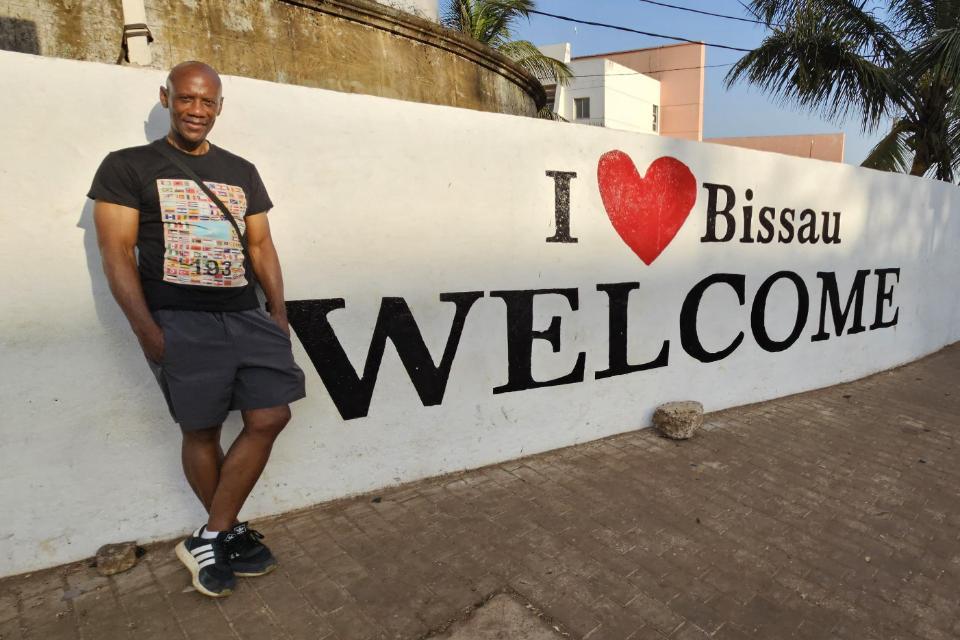- Lehman College >
- News >
- 2020 >
- 10 Questions with Professor Stuart Chen-Hayes: He’s Here, Queer and on Twitter
News
Search All News
Tuesday, March 3, 2026
CONTACT
Office Hours
Monday - Friday 9am - 5pmClosed Sat. and Sun.
RELATED STORIES
March 30, 2026
10 Questions with Professor Stuart Chen-Hayes: He’s Here, Queer and on Twitter

Stuart Chen Hayes
June 24, 2020
Stuart Chen-Hayes has been a Lehman College professor and program coordinator of counselor education and school counseling in the Counseling, Leadership, Literacy, and Special Education Department for the past 22 years. Last year he published his second book, Double Dads, One Teen: A Queer Family’s Trailblazing Life in the USA and Taiwan (Dio Press, 2019), which documents the story of how he and his husband forged a life and a family in the U.S. and in Taiwan. A documentary film with a fairly similar title was also produced, and was screened most recently at Indiana University. A third book, “Two Dads Are Just Fine,” is expected to be published by the end of the year. If you haven’t run into Chen-Hayes on campus or at the most recent protest for a #FreeCUNY, you can find him on Twitter (@SChenHayes), which he uses for professional development, advocacy, and leadership in school and college counseling, sexuality counseling, and international human rights issues for all ages.
Q: How did you become interested in teaching school counseling? Were you a school counselor first, before you began teaching? What led you to this calling?
A: My freshman year of college at Indiana University a classmate two doors down from me committed suicide. A year later I became an RA as I wanted to make a positive difference in the lives of college students. After finishing my undergrad, I received a master’s in counseling and counselor education and worked part-time in college student affairs and mental health counseling. I have also worked as a middle school counselor, a family counselor, a sexuality counselor, and a mental health counselor, as well as my current work as a school counseling district consultant.
My original focus was mental health counseling as a master’s level student, then family and multicultural counseling for my doctorate in Counselor Education. My first academic job was teaching mental health and family counseling. When I arrived at Lehman I heard different things about the program—some alums did agency counseling but most were school counselors. When I saw the data about K-12 achievement and opportunity gaps in New York City, I did constant professional development, read, and attended conferences and consulted with colleagues nationwide to learn how to transform school counseling—90 percent of our alums were in school counseling positions, yet the program didn’t meet national standards when I arrived. It exceeds them now with our Council for Accreditation of Counseling and Related Educational Programs accreditation and recent re-accreditation with our program redesign in 2002. We have subsequently added coursework in college access counseling, brief counseling of children and adolescents and will add a first student affairs counseling course soon. We have submitted a mental health counseling bridge program to the state and they’ve asked us to create a stand-alone mental health counseling program along with that. Once those are approved, we will begin work on CUNY’s first PhD in Counselor Education based here at Lehman.
Q: Your political activism, visible on Twitter, seems part of your work as an educator. Do you view it that way? Are the two inextricable for you?
A: Yes and yes. I teach our Leadership, Advocacy, Collaboration, and Change in Schools classes in school counseling. I use Twitter for professional development for myself and to model how to be politically engaged in advocacy and leadership as a tenured professor of counselor education. I encourage al of my students to be involved in politics—how to work effectively in a K-12 school building as well as in a district. But we can’t assist students only by doing counseling interventions in schools. We have to work systemically to challenge the oppressions that are created through opportunity and funding gaps, for example, which privilege wealthy white students K-20 versus most Bronx students, who are poor/working class and Black and Brown. I engage with activists, artists, and academics who have completely transformed how I teach and write as a scholar.
I found Sara Goldrick-Rab through Twitter, teach her work, and introduced her work to my colleague Prof. and Associate Director of Campus Life Suzette Ramsundar who took off with it and helped create Lehman’s Food Bank, Career Closet, and our shared work in ending #realcollege and helping our students graduate with a vision of free college returning to CUNY.
I teach a lot of young adult novels and found amazing resources to support the lived experience of Black and Latinx adolescents through @WeNeedDiverseBooks that I now teach in my Professional Identity in Counseling and Sexuality Counseling classes. I follow closely public education struggles K-16 and the work of #rankandfile union activists and have joined forces with @cunystruggle and a new @ranknfile group in PSC-CUNY pushing for a democratic union in the spirit of #RedforEd. My husband and I have been quite active in LGBTQ issues and I do my part to support #queertwitter. We were elated when Taiwan became the first country in Asia to adopt gay marriage and Twitter played a big part in marshalling international support. I’ve also found many wonderful guest speakers for both my school counseling and sexuality counseling classes on twitter including many of the city’s top education and sexuality activists.
Last summer I became involved in the international efforts to support Hong Kong students and residents challenging repressive policies of the #China government and befriended two dissident artists: @AiWeiWei and @Badiucao. That has continued with monitoring the spread of #coronavirus and pushing @WHO to fully involve Taiwan, something they have been reluctant to do. As a former journalist, I follow several independent journalists closely—Brian Hioe of New Bloom Magazine in Taiwan, Glenn Greenwald of the Intercept based in Brazil, and Caitlyn Johnson of Australia, who have greatly aided my critical thinking in human rights, press freedom, and challenging corporate excess, militarism, and fascism.
Q: Speaking of Twitter, where you are a constant presence, why out of all of the social media platforms, did you choose that one? What does it offer you that others don’t? Does it supplement your teaching practice, your activism or both?
A: I am a Scrabble fanatic. Twitter feels like modernist scrabble only I never run out of letters! I chose it because I felt like I could make a big difference with it in terms of equity and social justice. It has brought new friends and colleagues worldwide into my life. It informs and enhances my teaching scholarship, professional and personal development daily. It’s where authors, activists, and artists hang out and that’s where I want to be. Erin Mason, the co-author of my first book, kept encouraging me to open an account. I told her I would once we finished 101 Solutions for School Counselors and Leaders in Challenging Times. I haven’t looked back since.
Q: Your teen, Kalani, has also come out as queer. As someone who has gone through the coming out process yourself--and since the process of coming out is different with every individual or community--what are some of the similarities and differences between your coming out and Kalani’s?
A: A: The biggest difference is that Kalani has had queer dads for parents from Day 1 and Lance and I both had straight parents. Kalani grew up in an era with much more support, visibility, and affirmation than either of us. At the same time, new conceptions of gender and gender identity have given Kalani more vocabulary and depth to explore both sexual orientation and gender identity/expression than we had as children and adolescents. Last, Kalani is mixed race and so they’ve had to experience racism and othering in ways that my husband growing up in Asia did not experience until he immigrated into the USA and that I did not as a white person in the USA.
Q: You’ve navigated the legal, educational, family, and cultural systems surrounding domestic partnership, the surrogacy process, and gay marriage in local and national systems in both the U.S. and Taiwan. Your book seems to be part memoir, part blueprint for other queer families trying to navigate these same systems. Is that how you see it? What made you want to write this book?
A: Yes. It’s a memoir and a how-to process for finding ways to ensure legal and educational systems treat our family equitably on multiple school, family, and legal issues. In the U.S. and Taiwan our goal has always been finding family, legal, and educational supports. The rationale for the book came from my first sabbatical teaching in Taiwan in 2007. Lance and I, to this day, are the only gay couple who co-taught a graduate class in Asia—sexuality counseling, a first for Taiwan. The wonderful feminist and queer ally faculty member who brought us to National Changhua University of Education, Sharon Shu-Chu Chao, suggested that I write it as part of the sabbatical in that our stories were so important for Taiwanese and USA readers. For example, my husband is Taiwan’s first out gay father, and we were the first gay couple to be open in Taiwan with having conceived our child through surrogacy, and just after Taiwan passed gay marriage, our teen became the first legal dual national citizen of Taiwan with both dads’ names on a marriage certificate and a birth certificate. In the U.S., we became the first gay couple to have both names on a birth certificate from the state of North Carolina years before gay marriage was recognized. The first draft was completed 12 years ago and then I kept adding stories until it was published last year.
Q: Where did your biggest challenges lie in navigating these systems and how did you tackle them? Did you say to Lance, OK, you take Taiwan and I’ll take the U.S.?
A: We took each step gradually and initially weren’t seeking to publicize our story during the conservative George W. Bush era. But each time we returned to Taiwan we did public speaking and eventually the media found us and at that time so few LGBTQ folks were out of the closet and it spiraled from there. The biggest challenges were legal ones—not having gay marriage meant our relationship and our child didn’t have the legal protections that we all deserved. The second major area was negotiating issues with schools—some were supportive and some were not, and so we advocated and we taught our child to advocate and to this day, we all continue to do so as a family on two continents.
Q: You talked a little bit about this during your reading at Leonard Lief Library last fall and also in the documentary film, but how has your experiences in navigating the U.S. and Taiwan legally and culturally been similar and how have they been different?
A: They’ve been different for both of us as Lance is a dual national and I am not. But with gay marriage I can eventually be a permanent resident of Taiwan and our plan is to retire there in 12 years. Lance is fluent in four languages and I have great English and very minimal Mandarin and French. So when we’re in Taiwan, Lance takes the lead on many levels and I follow. Most Taiwanese have some English, so that’s a big plus for me. In the U.S., Lance is now a full-time LGBTQ+ activist with Asian Pacific Islander Rainbow Families New York so he is able to make fantastic community connections. I’ve done so through my scholarship as a queer academic and activist. Lance uses Facebook for activism and I use Twitter—so we collaborate but not when it comes to social media—each of us uses a different platform.
Q: Are there any issues you talk about in the book that are still unresolved or that you are still navigating?
A: Our future adult is an adolescent, so there’s always drama in adolescence. We see so much of the world backsliding toward fascism and dictators—Taiwan has only been dictator-free for 35 years. The racism, sexism, ableism, heterosexism, linguicism, immigrationism, religionsism, and other oppressions emanating from 45’s administration has been horrific, so we have plenty to fight. The CCP is constantly threatening Taiwan, so we have much to do in both countries. At any time, conservative regimes can take away queer and trans rights and immigration rights as 45 has started to do in the U.S.
Q: You’ve been a professor at Lehman College for more than 20 years. How has your experience as an out LGBTQ+ faculty member been for you at Lehman College? Has it changed over time?
A: Until recently, the queer presence at Lehman has been almost invisible for faculty. Students have been much better organized. It was only this last year that the Pride flag flew on campus. I was fortunate to start my first year at Lehman with a queer colleague and we’ve been friends ever since so that’s been fun. But Lehman doesn’t have an LGBTQ center on campus for students/staff/faculty and is really behind in that respect compared to most colleges and universities. There are lots of us here who are queer, but we’re scattered in our own disciplines and have not organized as a unit. I’ve been heartened by my discussions with Women’s Studies colleagues over planning to expand the scope to gender/sexuality studies including queer and trans issues.
Q: What are you reading right now?
A: One chapter left in Mona Eltahawy’s The Seven Necessary Sins for Women and Girls (discovered her and the book on Twitter and she will be a guest lecturer in my summer Sexuality Counseling class); Michelle Alexander's The New Jim Crow: Mass Incarceration in the Age of Colorblindness; Rebecca Atkins and Alicia Oglesby's Interrupting Racism: Equity and Social Justice in School Counseling; Consent: The New Rules of Sex Education by Jennifer Lang; and I have Edward Snowden’s memoir, Permanent Record, up next.









